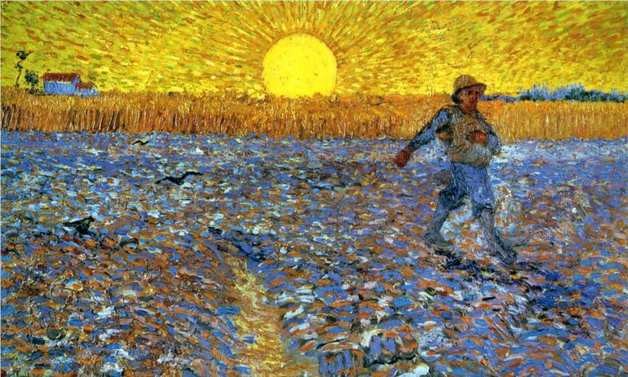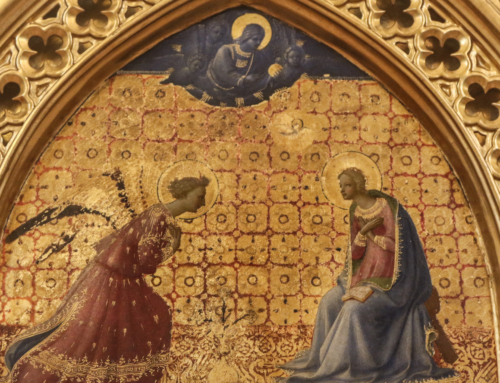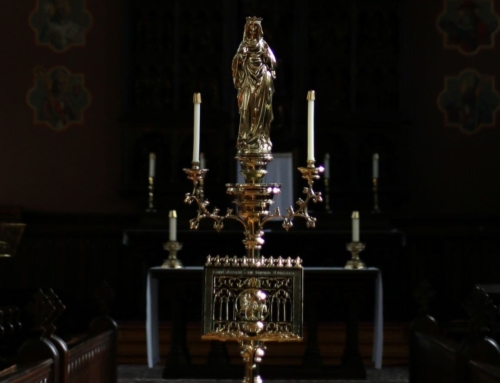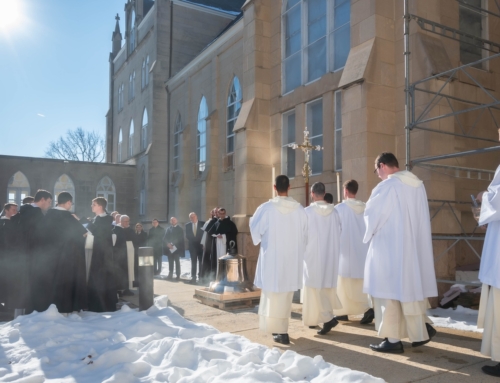How often do we see real change?
For starters, March 25 is the usual calendar date for the Annunciation of Gabriel to Mary, but it is transferred to the Monday after the Easter Octave whenever it falls within Holy Week. The day of perhaps the most dramatic change in human history is changed. In previous years (most recently in 2005) Good Friday has fallen on March 25, traditionally considered to be the date of the Crucifixion. That is why March 25 is the day on the Roman Martyrology to remember St. Dismas, the Good Thief. John Donne wrote an astounding holy sonnet for the occasion when the Annunciation and Good Friday coincide: on one and the same day, the Church remembers the Son of God’s very first and last moments, his entrance and exit from human life.
Besides calendar dates and virgin-mothers, what about us? Can people change? The question is difficult, because as much as we have seen people change (and as much as we may try to bring it about), so often we see little of it, not to mention the change we wish for our own lives.
Our current context—a “would be” Marian feast day, during the last, lingering days of Lent—can help us to go deeper with this question about change. Let’s compare Mary and John the Baptist, no stranger himself to the long days in the desert.
For starters, both prepared the way for Christ. He came into his human life through the fiat of Mary, and his public life through the preaching of John:
In those days came John the Baptist,
preaching in the wilderness of Judea,
‘Repent, for the kingdom of heaven is at hand.’
For this is he who was spoken of by the prophet Isaiah when he said,
’The voice of one crying in the wilderness:
Prepare the way of the Lord,
make his paths straight.’ (Mt 3:1–3)
The first word of the preached Gospel is repent, metanoeite, change your mind! While many will expect Jesus to correspond to their own dreams and ideas of improvement, he and John (Mt 4:17) make just the opposite clear from the start: Change! Mary is the most changed person in history. Upon her acceptance, God is conceived within her, and her life would never be the same afterwards.
And just as John was foretold by Isaiah, so also is Mary: “The virgin shall be with child, and bear a son, and shall name him Emmanuel” (Is 7:14). While Isaiah calls John the “voice,” we must remember what Elizabeth says upon Mary’s visit: “When the voice of your greeting came to my ears, the babe in my womb leaped for joy” (Lk 1:44). It was Mary’s voice after all that first made John stir and leap. Her voice changes the child who becomes the one bo-ōntos, shouting, in the wilderness! John is given the privilege of sounding the alarm on Christianity. “He’s coming! He’s here!” But does it work? Does anyone else change?
John would see little of the change he began. After all, he was only sent to “prepare the way.” The vocation of every baptized person is just this: to prepare for Christ. “For here the saying holds true, ‘One sows and another reaps.’ I sent you to reap that for which you did not labor; others have labored, and you have entered into their labor” (Jn 4:37–38). John is soon imprisoned and can only hear of the works of Jesus within the darkness of his prison cell. How much of the harvest did Mary herself see? She is mentioned very little in Jesus’s public ministry, and at his resurrection it is another Mary mentioned, not her. Even Jesus himself departs, leaving his Spirit among his disciples that they might bear fruit.
Can people change? Once, a woman said to me, “Yes, but they have to choose to.” This half of the equation is important. God has much in mind for us, but we have to cooperate freely. Our job as disciples is only to sow, to set to the plow without looking back, to love without counting the cost or searching for signs.
Each of us does change every day. It’s just that we see very little from our perspective, but God is always at work in the world. And if we give ourselves over to Mary, she will again use her voice on our behalf, the same voice which made God become man. This very voice will plead on our behalf, that we (and all whom we love) might be changed for good—whether we see it or not.
✠
Image: Vincent van Gogh, The Sower (Sower with Setting Sun)







